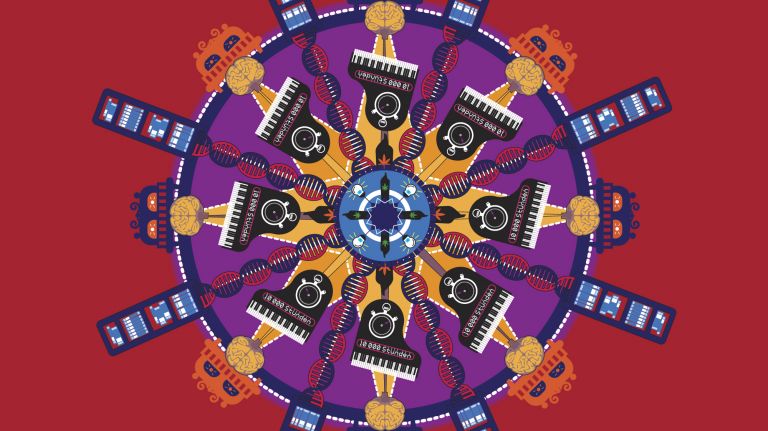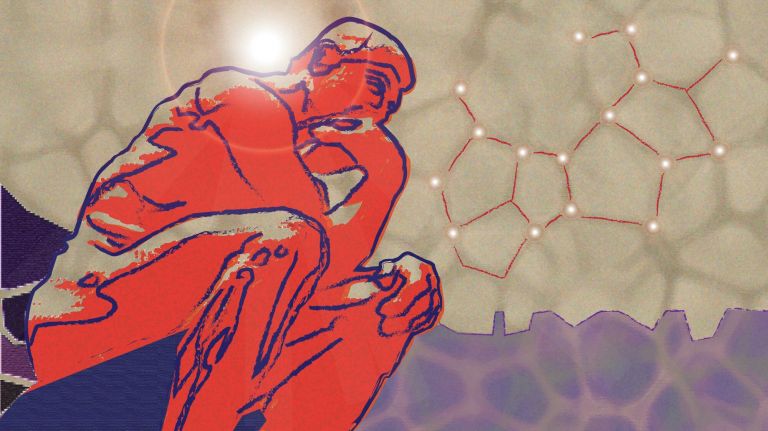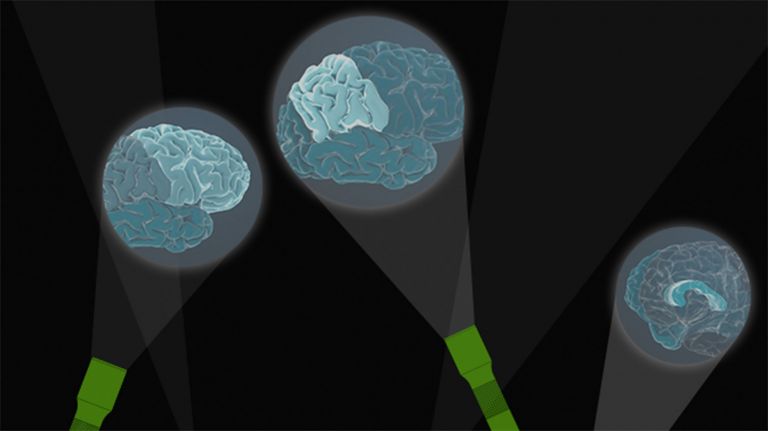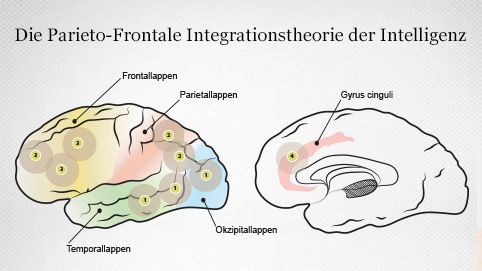Prof. Dr. Robert Gaschler
PromotionNach einem Diplom in Psychologie promovierte Robert Gaschler an der Humbolt Universität zu Berlin. Zuvor untersuchte er an der International Max Planck Research School dasThema "Evolutionary and Ontogenetic Dynamics". Gaschler war als Juniorprofessor in Landau tätig sowie als Postdoctoral Fellow an der Charité - Universitätsmedizin Berlin. Er ist Professor für Allgemeine Psychologie (Lernen, Motivation, Emotion) an der FernUniversität in Hagen.
Arbeitsschwerpunkt:
Kognitive Neurowissenschaften
Ausbildung:
Studium Psychologie
Abschluss:
Promotion
Position / Tätigkeit:
Professor für Allgemeine Psychologie (Lernen, Motivation, Emotion) an der FernUniversität in Hagen
Homepage:
http://www.fernuni-hagen.de/psychologie/app/mitarbeiter/index.shtml
Kemper, M., Gaschler, R., Schwager, S., & Schubert, T. (2016). The benefit of expecting no conflict - Stronger influence of self-generated than cue-induced conflict expectations on Stroop performance. Acta Psychologica, 163, 135?141. doi: 10.1016/j.actpsy.2015.11.008
--------
Godau, C. & Gaschler, R. (2015). Wahrnehmung von Datengrafiken. Ein verzerrter Eindruck? In: H. Bredekamp & W. Schäffner (Hrsg.), pp. 79 ? 85, Haare hören „ Strukturen wissen “ Räume agieren, Berichte aus dem Interdisziplinären Labor Bild Wissen Gestaltung. transcript Verlag, Bielefeld.
Buckmann, M.*, Gaschler, R.*, Höfer, S., Loeben, D., Frensch, P. A., & Brock, O. (2015). Learning to explore the structure of kinematic objects in a virtual environment. Frontiers in Psychology. 6:374. doi: 10.3389/fpsyg.2015.00374 [*shared first authorship]
Gaschler, R., & Ahmed, F. (2015). Modelle gebrauchen lernen. Erwägen Wissen Ethik, 26(3), 375-377.
Gaschler, R., Marewski, J. N., & Frensch, P. A. (2015). Once and for all ? How people change strategy to ignore irrelevant information in visual tasks. Quarterly Journal of Experimental Psychology, 68, 543-567. doi: 10.1080/17470218.2014.961933
Gaschler, R. & Schuck, N. W. (2015). Bitte drängeln, dann geht alles schön der Reihe nach ? wie wir Reihenfolgen abspeichern und wiedergeben. InMind 4
Hansen, S. M., Haider, H., Eichler, A., Godau, C., Frensch, P. A., & Gaschler, R. (2015). Fostering formal commutativity knowledge with approximate arithmetic. PLoS ONE 10(11): e014255. doi: 10.1371/journal.pone.0142551
Martini, M., Sachse, P., Furtner, M., & Gaschler, R. (2015). Why should working memory be related to incidentally learned sequence structures? Cortex, 64, 407-410. doi: 10.1016/j.cortex.2014.05.016
Paschke, L. M.*, Walter, H.*, Steimke, R., Ludwig, V. U., Gaschler, R., Schubert, T., Stelzel, C. (2015). Motivation by potential gains and losses affects control processes via different mechanisms in the attentional network. NeuroImage, 111, 549-561, doi:10.1016/j.neuroimage.2015.02.047; * shared first authorship
Schuck, N. W., Gaschler, R., Wenke, D., Heinzle, J., Frensch, P. A., Haynes, J.-D., & Reverberi, C. (2015). Medial prefrontal cortex predicts internally driven strategy shifts. Neuron, 86, 1?10. doi: 10.1016/j.neuron.2015.03.015
--------
Christophel, E., Gaschler, R., Schnotz, W. (2014). Teachers? expertise in feedback application adapted to the phases of the learning process. Frontiers in Psychology. 5:858. doi: 10.3389/fpsyg.2014.00858
Gaschler, R., Marewski, J. N., Wenke, D., & Frensch, P. A. (2014). Transferring control demands across incidental learning tasks ? Stronger sequence usage in serial reaction task after shortcut option in letter string checking. Frontiers in Psychology, 5:1388. doi: 10.3389/fpsyg.2014.01388
Gaschler, R., Progscha, J., Smallbone, K., Ram, N., & Bilalic, M. (2014). Playing off the curve ?Testing quantitative predictions of skill acquisition theories in development of chess performance. Frontiers in Psychology, 5:923. doi: 10.3389/fpsyg.2014.00923
Gaschler, R.*, Schwager, S.*, Umbach, V. J., Frensch, P. A. , & Schubert, T. (2014). Expectation mismatch: Differences between self-generated and cue-induced expectations. Neuroscience and Biobehavioral Reviews, 46, 139-157. doi:10.1016/j.neubiorev.2014.06.009 [*shared first authorship].
Godau,C., Haider, H., Hansen, S., Schubert, T., & Gaschler, R. (2014). Spontaneously spotting and applying shortcuts in arithmetic ? A primary school perspective on expertise. Frontiers in Psychology, 5:556. doi: 10.3389/fpsyg.2014.00556
Godau, C.*, Wirth, M.*, Hansen, S., Haider, H., & Gaschler, R. (2014). From marbles to numbers - Estimation influences looking patterns on arithmetic problems. Psychology, 5, 127-133. doi: 10.4236/psych.2014.52020 [*shared first authorship]
Haider, H., Eichler, A., Hansen, S., Vaterrodt, B., Gaschler, R., Frensch, P. A. (2014). How we use what we learn in Math: An integrative account of the development of commutativity. Frontline Learning Research, 2(1), 1-21. doi:10.14786/flr.v2i1.37
Zhao, F., Schnotz, W., Wagner, I., & Gaschler, R. (2014). Eye tracking indicators of reading approaches in text-picture comprehension. Frontline Learning Research, 2(4), 46-66. doi: 10.14786/flr.v2i4.98
Boldt, A., Stürmer, B., Gaschler, R., Schacht, A., & Sommer, W. (2013). Get out of here, quick! Problems with transparent labels on glass doors. Journal of Experimental Psychology: Applied, 19, 241?253. doi: 10.1037/a0034079.
Gaschler, R., Vaterrodt, B., Frensch, P. A., Eichler A., Haider, H. (2013). Spontaneous usage of different shortcuts based on the commutativity principle. PLoS ONE 8(9): e74972. doi: 10.1371/journal.pone.0074972
Gaschler, R., Frensch, P. A., Cohen, A., & Wenke, D. (2012). Implicit sequence learning based on instructed task set. Journal of Experimental Psychology: Learning, Memory, and Cognition, 38, 1389-1407. doi: 10.1037/a0028071
Gaschler, R., Katz, D., Grund, M., Frensch, P. A., Brock, O. (2012). Intelligent object exploration.In M. Inaki (Ed.), Human machine interaction. Intech. doi: 10.5772/25836
Gaschler, R., & Nattkemper, D. (2012). Instructed task demands and utilization of action effect anticipation. Frontiers in Psychology, Vol. 3, Art. 578. doi: 10.3389/fpsyg.2012.00578
Gaschler, R., & Wassermann, M. (2012). Was wir wissen, wie wir werten - zusätzliche Information über das neue EU Biolabel verändert Bewertung kaum. Umweltpsychologie, 16(2), 141-161.
Kemper, M., Umbach, V. J., Schwager, S., Gaschler, R., Frensch, P. A., & Stürmer, B. (2012). Stronger effects of self-generated vs. cue-induced expectations in event-related potentials. Frontiers in Psychology, Vol. 3, Art. 562. doi: 10.3389/fpsyg.2012.00562
Schuck, N. W., Gaschler, R., & Frensch P. A. (2012). Implicit learning of what comes when and where within a sequence: The time-course of acquiring serial position-item and item-item associations to represent serial order. Advances in CognitivePsychology, 8, 83-97. doi:10.2478/v10053-008-0106-0.
Schuck, N. W., Gaschler, R., Keisler, A., & Frensch P. A. (2012). Position?item associations play a role in the acquisition of order knowledge in an implicit serial reaction time task. Journal of Experimental Psychology: Learning, Memory, and Cognition. 38, 440-456, doi: 10.1037/a0025816
FernUniversität in Hagen
UniversitätInstitut:
Institut für Psychologie
Arbeitsschwerpunkt:
Kognitive Neurowissenschaften
Anschrift:
Universitätsstraße 33
58084 Hagen
DE
Telefon:
02331 987-2554
E-Mail:
robert.gaschler@fernuni-hagen.de
Homepage:
http://www.fernuni-hagen.de/psychologie/app/mitarbeiter/index.shtml



